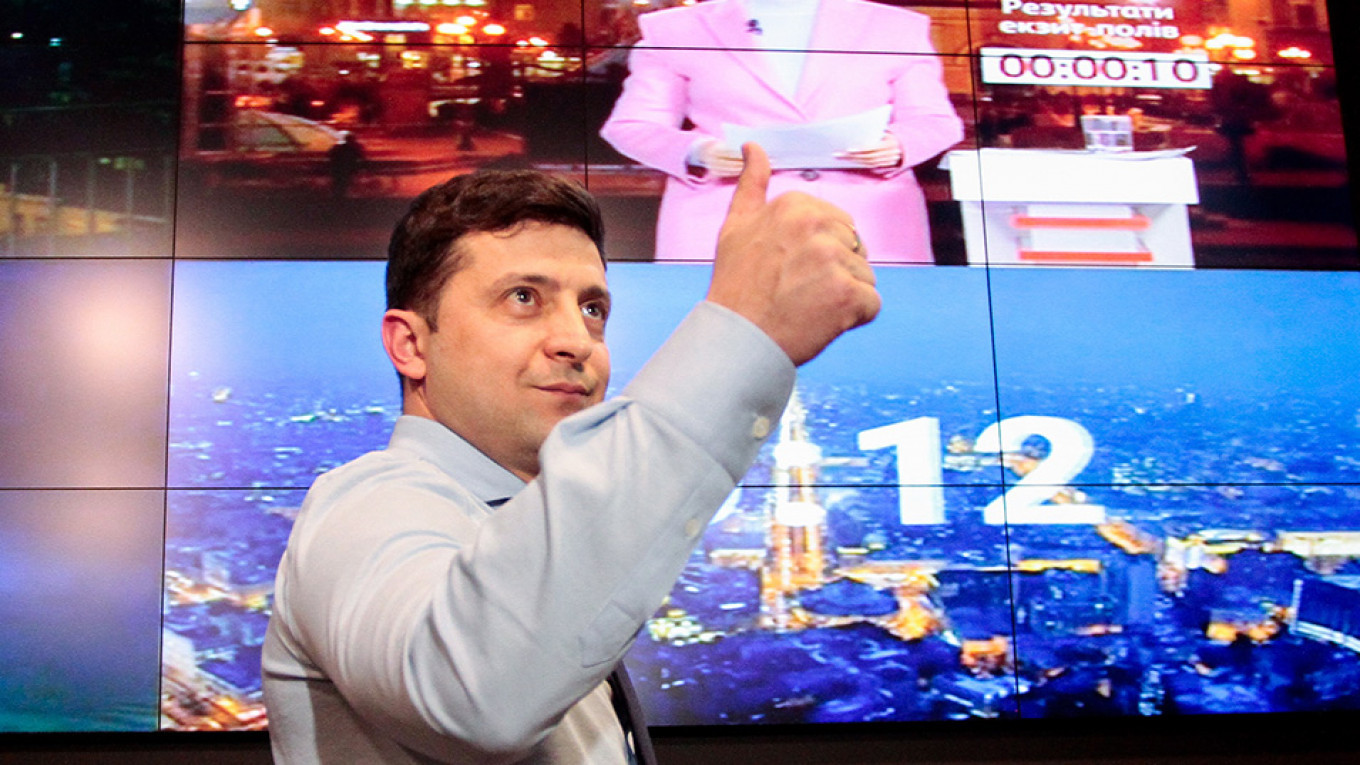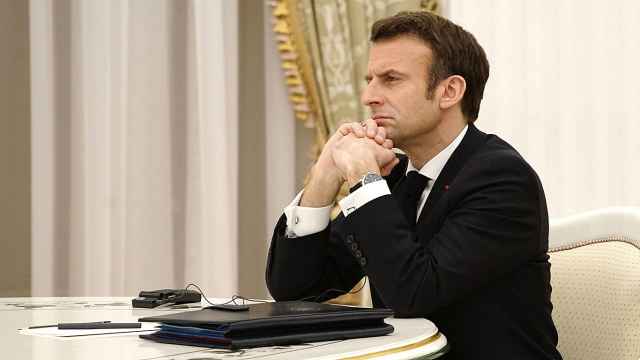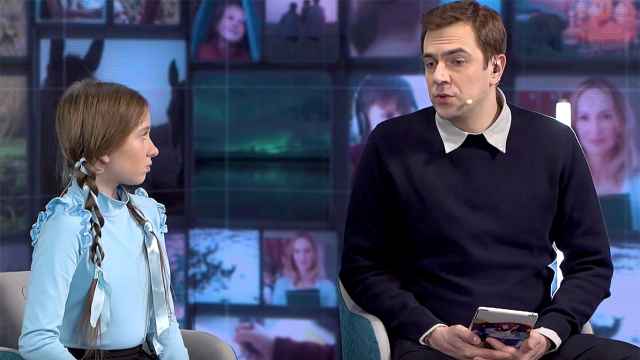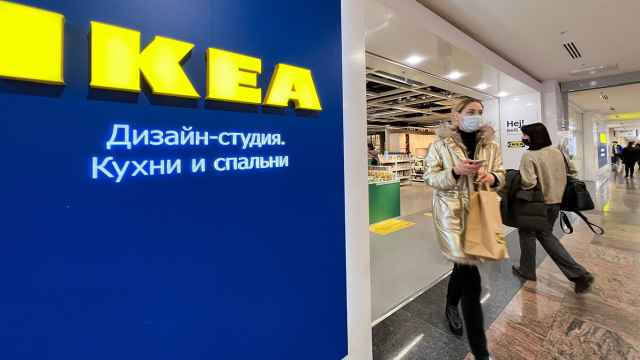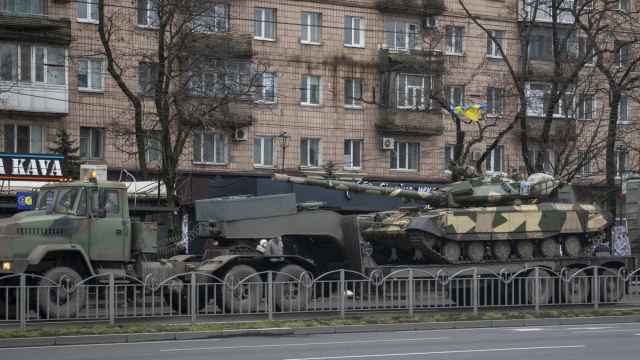Speaking during a debate on April 13 to which only he turned up, Ukrainian President Petro Poroshenko labeled his absent opponent in the upcoming presidential runoff, Volodymyr Zelenskiy, “an unknown quantity.” But voters in Ukraine, tired of the predictability of presidents following every Maidan revolution, see unpredictability in a possible future leader not as a fault, but an advantage.
Zelenskiy’s recent trip to Paris to meet French President Emmanuel Macron was symbolic of what the comedian-turned-politician is modeling himself on. He is neither far right nor far left, but has taken on the role of a third force: one geared toward reform and establishing peace in Ukraine.
Even if Zelenskiy doesn’t know how to speak and think articulately, his party, Servant of the People, will do that for him. If its rating turns out to be as high as the youthful presidential candidate’s, the party will be able to campaign ahead of the October parliamentary elections without forming a coalition or finding allies.
After all, it is not at all in Zelenskiy’s interests to take a coalition of parties and politicians from the past — such as former prime minister and fellow presidential contender Yulia Tymoshenko — with him into the future.
Zelenskiy doesn’t understand the first thing about economics, but everything depends on the team he puts together. It should be largely independent of the oligarchs’ business interests — no mean feat — and inspire trust both among Ukrainian voters and Western financial and economic elites.
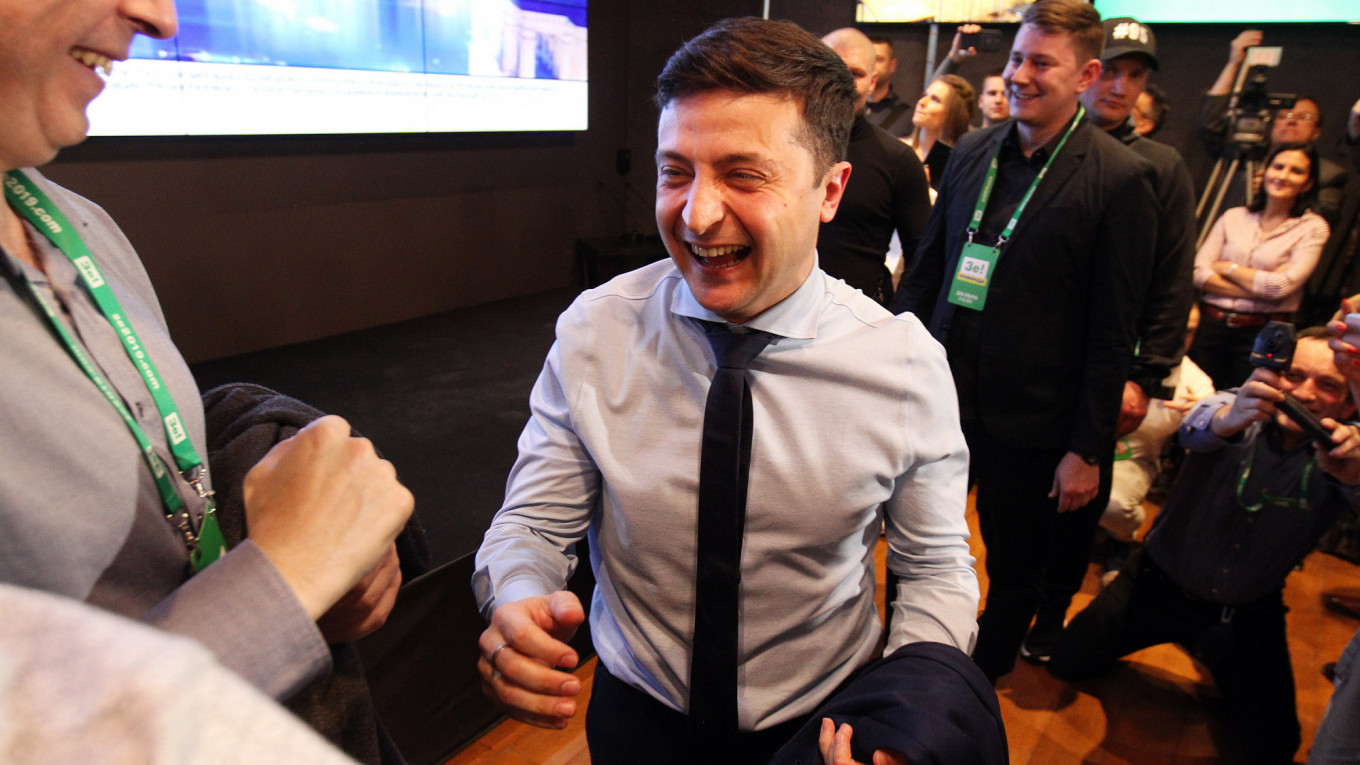
Most importantly, it should be prepared to carry out the reforms that began after the Maidan revolution in 2014, then ground to a halt. It’s crucial that Zelenskiy sticks to the path of reform and keeps up the fight against corruption.
It’s clear that Zelenskiy has no real policy on Russia. If the rumors are true, and Russia is prepared to give Russian passports to residents of Ukraine’s breakaway territories of Donetsk and Luhansk, that will seriously complicate the beginning of his presidency as it would be a hostile move on Russia’s part.
Perhaps his visit to Macron is a symbol of Zelenskiy’s readiness to employ the so-called Normandy format of talks between France, Germany, Ukraine and Russia, to end the war in eastern Ukraine. That format has been on ice for at least two-and-a-half years. To jump start it would require a well-prepared agenda for talks, and it’s far too early to speak of that.
So far the Russian establishment’s only noticeable strategy on the Ukrainian election is using propaganda to mock it. How serious relations with Ukraine will be forged against this backdrop is not at all clear. Most likely, in light of Russia’s lack of preparation for the eventuality of a president Zelenskiy, no one has given that any serious thought.
Whether or not anyone among the Russian leadership has the political will to communicate with Zelenskiy is a major question. Ukraine’s potential new president is not Nikol Pashinyan, who swept to power in Armenia on the back of a street revolution. Armenia is a strategic partner for the Russian authorities, and president Vladimir Putin may wrinkle his nose in distaste, but he has no choice but to hold amicable negotiations with Pashinyan. Equally, the Armenian Prime Minister knows that breaking off his country’s economic ties to Russia could be catastrophic.
Ukraine, however, has not been a strategic partner for Russia since the Maidan revolution.
The problem is that Russian authorities have never been inclined to consider Ukraine a truly separate state. Ukraine has always been “ours,” just like Crimea.
In the minds of the Russian leadership, it remains a buffer between Russia and the West, and part of Russia’s sphere of influence.
We should take Putin’s words about Russians and Ukrainians being one people literally. This attitude is unlikely to change, so Ukraine having a new president will not solve all the problems that have arisen since 2014. That would require political will, and there is none.
In the eyes of Russians, Ukraine is being manipulated by the West, above all by the U.S.
This was reflected in the results of sociological research conducted in February by the Levada Center pollster — 56 percent of Russians have a negative attitude toward Ukraine, precisely the same figure that have a poor opinion of the U.S. The EU is slightly less unpopular, at 45 percent.
It’s not difficult to see that any friendly gestures made by Zelenskiy toward the West — and they are natural and inevitable — will be perceived by the Russian elites as hostile moves against Russia.
Before a pragmatic relationship between Russia and Ukraine can be achieved, there are purely political problems that must be solved, such as relaunching the Minsk peace process, and starting talks on the status of Crimea. But how?
The fact is that this is almost certainly impossible, even if Zelenskiy does turn out to be a Ukrainian Macron.
A Message from The Moscow Times:
Dear readers,
We are facing unprecedented challenges. Russia's Prosecutor General's Office has designated The Moscow Times as an "undesirable" organization, criminalizing our work and putting our staff at risk of prosecution. This follows our earlier unjust labeling as a "foreign agent."
These actions are direct attempts to silence independent journalism in Russia. The authorities claim our work "discredits the decisions of the Russian leadership." We see things differently: we strive to provide accurate, unbiased reporting on Russia.
We, the journalists of The Moscow Times, refuse to be silenced. But to continue our work, we need your help.
Your support, no matter how small, makes a world of difference. If you can, please support us monthly starting from just $2. It's quick to set up, and every contribution makes a significant impact.
By supporting The Moscow Times, you're defending open, independent journalism in the face of repression. Thank you for standing with us.
Remind me later.



